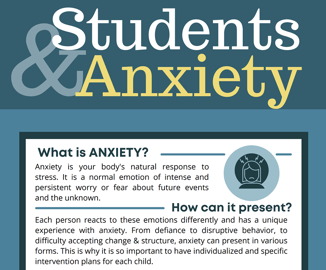Editor's Note: In this week's blog, we invited clinical psychologist, Dr. Eva Benmeleh, to share her unique perspective & expertise on perfectionism - an area that her practice focuses on treating.
---
As a psychologist who specializes in perfectionism, parents often ask me whether or not their children could have ADHD. It may be because their room is a total disaster, or they seem to routinely forget to hand in their schoolwork, or maybe they procrastinate until the wee hours of the night to complete an assignment due the next day. Because of these challenges, I sometimes hear many parents come to the conclusion that their child is lazy, unorganized, or selfish. While these types of issues are definite signs of Executive Functioning deficits, they can also be signaling something that may seem counterintuitive - perfectionism. 
Parents are flabbergasted when I suggest that perhaps their child lives within a messy and unscheduled life because they are putting off the responsibility to get the work done perfectly. Most people assume that a perfectionist is someone with a strictly organized environment and routine, the highest grades, and many accolades. Nothing below perfect is accepted by them and they strive daily for that sense of accomplishment. Yet, what many people don’t recognize is the behind-the-scenes agony that transpires inside a child’s (or adult’s) head when they strive for perfection. The amount of planning, rough drafts, materials, and time it takes to reach perfection can weigh heavily on anyone who rigidly believes that this is the only recipe for success. It’s no wonder why so many projects seem like gigantic monsters that should be avoided until a student has no choice but to face the fear and get it done or fail the class.
In many of these cases, students fear failure so much that they would rather endure their parents’ nagging and complaining than sit down and complete their assignments imperfectly. The irrational yet strong belief is along the lines of, “If I don’t do it, no one can confirm whether or not I am smart” or “I won’t fail if I don’t try.” In other cases, some children may fear that if they reach a higher level than they had before, others will expect that they will always have to stay there, regardless of their feelings about it.
In the most specific terms, perfectionism is a type of anxiety that manifests within three subtypes: self-oriented perfectionism, other-oriented perfectionism, and socially prescribed perfectionism. So what are these subtypes exactly?
Self-Oriented Perfectionism
Self-oriented perfectionism is when the person expects to reach a high level of perfection for themselves, For example, a child who is self-oriented sets high standards for their accomplishments regardless of what others think of them. To paint a picture, this could manifest in a child wanting to earn straight A’s even though their parents aren’t prone to making a big deal about grades.
Other-Oriented Perfectionism
Other-oriented perfectionism is when the person holds others to high, usually unattainable standards of perfection. An other-oriented perfectionist can’t deal with the mistakes of others (think a parent who becomes irate when their child spills a drink or fails to organize their room exactly as they should have.) People with other-oriented perfectionism expect that people do what they say without making any mistakes.
Socially Prescribed Perfectionism
Individuals with socially prescribed perfectionism are incredibly hard on themselves, feeling like they must be the best to avoid rejection. Socially prescribed perfectionists feel that they are expected to be perfect at all times by their peers, parents, and teachers. Somewhere along their journey, these perfectionists internalized that the world expects nothing less than flawlessness at all times and that there will be some level of external consequence if that ideal is not met.
--
Even though perfectionism can be broadly broken down into these subtypes, someone can certainly have a mix of all three, making it difficult for parents and children to pin down which one is more salient. In these cases, the priority should be to resolve these irrational beliefs that affect a person’s self-esteem, productivity, and relationships.
When parents live with these behaviors day in and out, the exasperation and frustration levels can rise through the roof. Parents of children who have perfectionistic traits also tend to demonstrate their own style of perfectionism. When this happens, it can become a domino effect of sorts when parents expect high and sometimes unrealistic standards of themselves and their children. As a result, children can begin to demonstrate their own maladaptive perfectionistic behaviors which, left unchecked, can cause turmoil for a child’s mental health. For example, the pervasive feeling that they can’t get something right or that nothing they do will ever be good enough can become a chronic way of thinking that manifests into anxiety, depression, and overall low self-esteem. To make matters worse, there’s a lot of shame associated with perfectionism - no child likes to feel like they are letting their parents down. Particularly when a child receives a diagnosis of a learning disability or attentional concern, many parents believe that they must follow the action plan to perfection to help their child. This is only partly true, and at the end of the day, the most important component in treatment is to have a plan that's tailored to a child's specific needs.
The Takeaway?
When perfectionism reaches this level, professional intervention is the best road forward, and therapy is the gold standard. And in perfectionist children, the therapy needs to be multifold. For example, when there is a learning disability or an Executive Functioning issue involved, it is crucial that the child have a psycho-educational evaluation completed to assess strengths and weaknesses for proper academic support. Therapy includes debunking myths of perfection and exploring other lifestyle choices based on reality and not on expectations.
Children and adults with perfectionistic tendencies tend to think in black or white terms. In therapy, we look for ways to poke holes in their ironclad rigid thinking. We talk about being in the present moment instead of trying to predict the future. Therapy also includes shifting thoughts from catastrophic worst-case scenarios to best-case scenarios. In this way, both parents and children can strive to reach higher goals based on the child’s actual abilities and not ones that only appear via force, fear of punishment, or stress. Expectations based on actual abilities create greater accountability and motivation in the child to get work done, as well as improve communication and connection between a parent and child. Best of all? Parents begin to discover that the true meaning of success is as individualized as each child, allowing them to learn when and how to motivate their children for optimal results - and that is a gift likely to keep on giving for many years to come.
--
 Perfectionism & anxiety almost always go hand-in-hand. Download our free infographic on student anxiety and learn 6 tips to better navigate this widespread challenge.
Perfectionism & anxiety almost always go hand-in-hand. Download our free infographic on student anxiety and learn 6 tips to better navigate this widespread challenge.
Photo by jurien huggins on Unsplash

